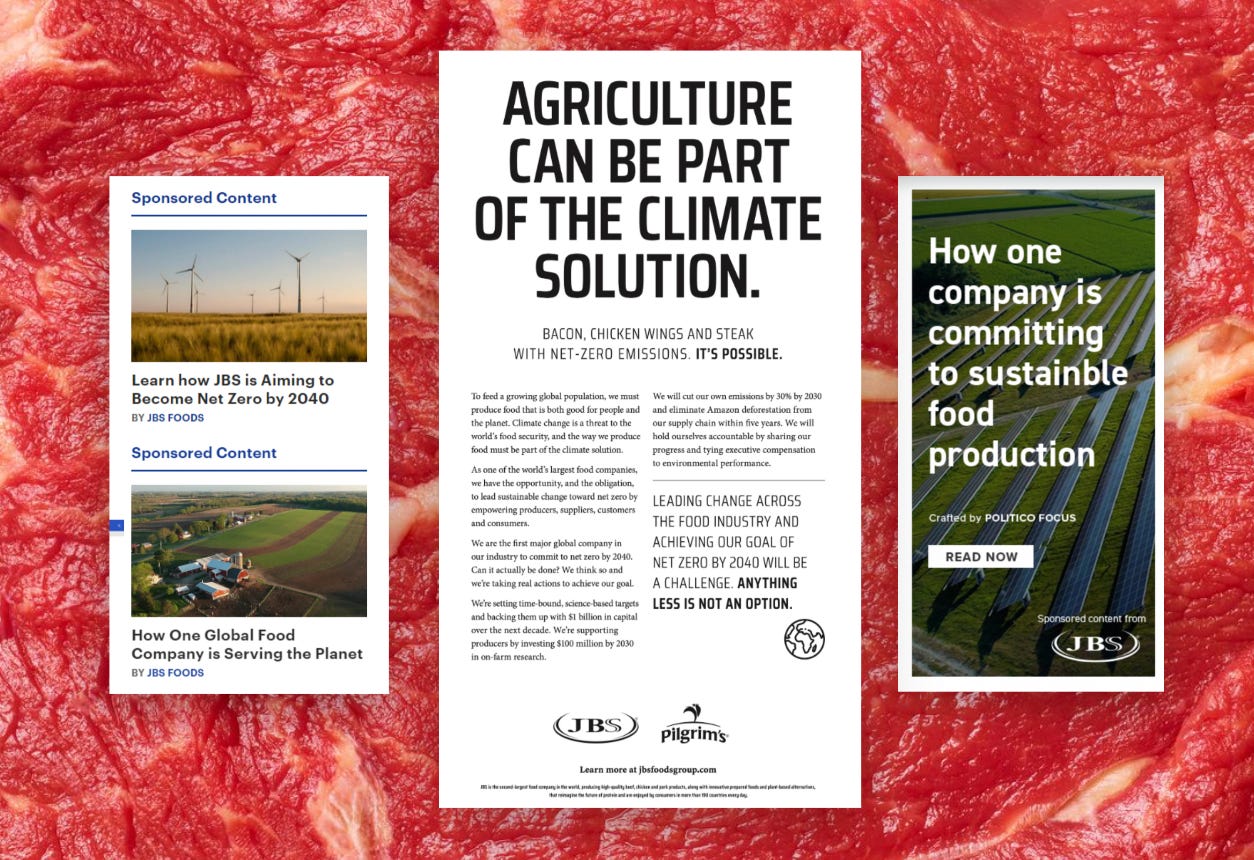Big Meat is lying about sustainability. These media outlets are helping.
Can newsrooms really expect people to trust their reporting if they fund it by spreading misinformation?

First, Letitia James took on Donald Trump. Now, she’s taking on the meat industry. In a first-of-its-kind lawsuit filed last week, the New York …



